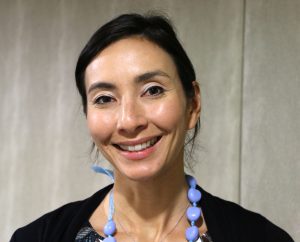“Technology is essential for providing Pacific youth with better opportunities for their future.” This was a key message at the Pacific Wave “Prosperous Futures through Technology” conference in Auckland on Friday. The Pacific Media Centre’s TJ Aumua reports.
Hosted annually by the Pacific Cooperation Foundation, this year’s Pacific Wave event was held at Aotea Square, Auckland, where guests spoke about the importance of Pacific youth playing an innovative role in technology.
A significant keynote speaker was Dr Michelle Dickinson, director of the science and technology organisation Nanogirl and a senior University of Auckland lecturer.

Dr Dickinson, who describes herself as a “passionate engineer who wants to make a difference in the world”, stressed the importance of having diversity in science and engineering industries.
A call for diversity
“We need to talk more openly about having more female and especially Pacific and Māori students in this industry,” Dr Dickinson said.
“I get students to draw what they think a scientist looks like and it’s always a guy,” she said during her presentation.
“I’ve probably had over a thousand kids draw a picture of a scientist and I’ve never had one of them draw a women and I’ve never had one of them draw a picture of someone from a minority group… we need to change that.”
Speaking to Asia Pacific Report, Dickinson explained: “Diversity in science and engineering is really important because what we do is solve problems. The best way to solve problems is to have teams and if you have a team of people that are just like you and think like you, you probably are not going to problem solve as well as if you had a diverse team.”
Diverse teams ensure people are coming with different experiences and backgrounds, which help create the best science solution or engineering product, she said.
Also a co-founder of OMG Tech! A programme that is focused on state of the art technology, allows children in primary and intermediate schools across the nation to take part in workshops, learning aspects of 3D printing, coding and building robots.
Passionate about her cause, Dr Dickinson said she did not run a workshop unless the class was 50 percent female and 50 percent low decile Māori and Pasifika students.
“Because I want to create a technical space of education where the minority become the majority,” she said.
Pacific innovation
Pacific high school students who attended the conference were encouraged to be creative and to think of innovative ways of using technology to add value to society.
Mike Usmar, the chief executive for High Tech Youth, an organisation which allows young people to use technology to change economic environments, said technology creates room for groundbreaking ideas.
“There is amazing innovation in the Pacific community and they’re utilising technologies in ways probably the designers didn’t think. That is just a hallmark of where our future is with our young people.”
New Zealander and global entrepreneur Jamie Beaton also spoke at the event.
The Kings College graduate is the chief executive of Crimson Consulting, a company that has made almost $90 million within three years.
The institution helps young professionals gain the mentoring and assistance they need to study at world-class universities.
“Basically after high school I had applied to all these universities around the world. After I gained admission to them I realised there was this massive need in New Zealand to help students with the resources necessary to break these geographical boundaries – that was the starting block,” he told Asia Pacific Report.
More Pacific needed
The 21-year-old reinforced the theme of empowering youth with technology.
Beaton explained he is particularly focused on helping universities which are actively trying to recruit students from the Pacific.
“But there isn’t enough representation right now from Pasifika, so we need more applicants.”
“I want to help inspire more of these students by providing the tools necessary to get into these places.”
He said it was important for young people to remember that their potential is not bound by their community, but instead bound by the world.











































